NOTE: In the early years of The Zephyr, Moab was transforming itself, though not everyone was sure just who the ‘transformers’ were. We set out to ask the citizens of Moab and Grand County what they saw coming. Here is the first installment of “What Does Moab Want?” From May 1990…
The vast numbers of tourists, arriving in ever increasing numbers has split the community as well. Moab and Grand County have so far been unable to develop an infrastructure that can keep up with tourist growth. Inadequate camping facilities have turned the river corridor and the Sand Flats area into genuine health hazards. The Moab Police Department, which boasts a force of eight, can barely keep up with the problems that arise on a busy weekend when tourists double or even triple the town’s population. The Grand County Sheriff’s office has been forced to devote more and more of its time to search and rescue operations, when visitors, unfamiliar with the harsh and confusing canyon country, become lost or injured. This year the Sheriff’s office has begun charging those victims for search and rescue costs.
Proponents of tourism believe that improving the infrastructure and finding the money to deal with the growing numbers is absolutely vital, and will produce dividends far beyond the costs. But there are others who believe tourism is out of control like a runaway train, that it is creating a hectic frenetic lifestyle for people who live in Moab because they want to avoid that kind of chaos. One local merchant puts it like this: “I want to make enough money to be comfortable, but I want to be happy too, and have the time to go fishing when I want. What’s the point in making loads of money and working 16 hours a day and never going fishing/”
More than anything, many Moabites feel like they are losing control of their community and their own lives. They fear that forces beyond their control are leading, or perhaps pushing them in a direction they do not want to go. But again, is this fear shared by most of the citizens, or by a vocal minority?
It seemed like the best way to find the answer was to go out on the streets, and into the shops and stores, and ask the men and women who live here. With tape recorder and notebook in hand, the candid comments of a broad spectrum of Moabites, from “orgo-hippies” to “redrock cowboys,” from bureaucrats to barbers, from Sierra Clubbers to Western Land Users. This is what Moab is saying about the future it wants, or the future it fears…
Ray Tibbetts, real estate agent:
“We want out of town money; that’s the icing on the cake. The bad part is there’s a lot of big money coming in here, where local people cannot bid on that market to buy real estate. So we could become like Park City or Aspen someday. We promoted tourism when we had a healthy economy, because we need that industry. What’s good is when you have a little bit of both. Then you’re more diversified. The worst thing about tourism is that the jobs created are usually low-income jobs, whereas your mining and industrial jobs pay a lot better.”
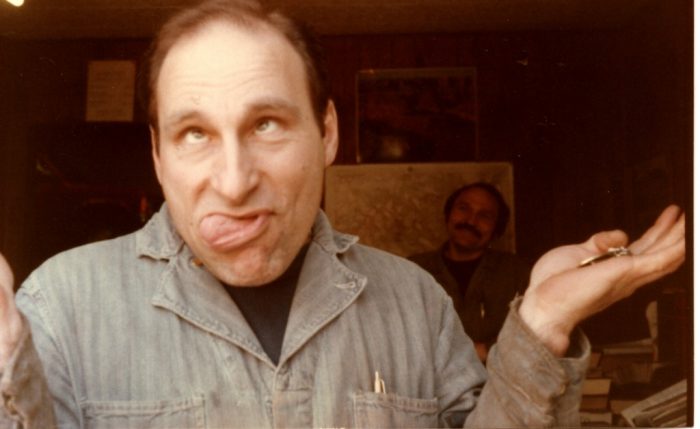
Bill Ossusky, auto mechanic:
“Any influx of money into the community is good, as long as it benefits the community as a whole and not just certain individuals.”
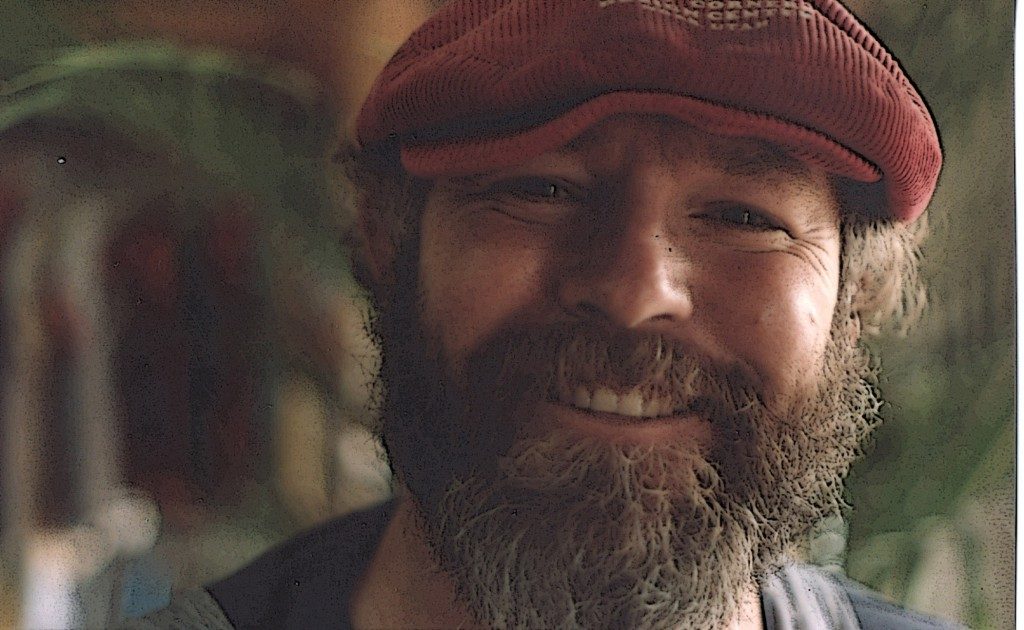
Zeke Francis, T-Shirt Shop owner:
“On the out of town money, it’s going to price local business out of the market, because we’re not going to be able to afford to rent the space and keep what we have here. As far as housing goes, when out of town people come in and spend $60,000 for an overinflated $30,000 house, the taxes next door go up and we price the elderly out.”
Rex Holman, advertising director:
“I would say that tourism is not the answer (to our economic problems) but as has been proven in other rural tourist oriented communities, tourism can lead to the beginnings of economic development, i.e. the re-location of the types of plants and facilities and small industries that are tied to tourism in some respect. As for out of town investment, I think it’s only natural that when an area is obviously receiving excellent publicity that out of town investment is going to nose around, and if they see opportunities, they will invest.
I don’t think Moabites will lose their power base (to out of towners) if they take an active role. If they are passive, their power base will be diluted or erode, simply because they have not reacted or done something positive. The same opportunity for investment is there for a local as an outsider. But it’s not realistic for someone who’s making a working wage to idly dream that he wants to build a motel in the million dollar category. But that same person can decide to make some small product and sell it to shops, use their ingenuity. That ingenuity has to be channeled to what you can afford. He who has the gold rules—the Golden Rule.”
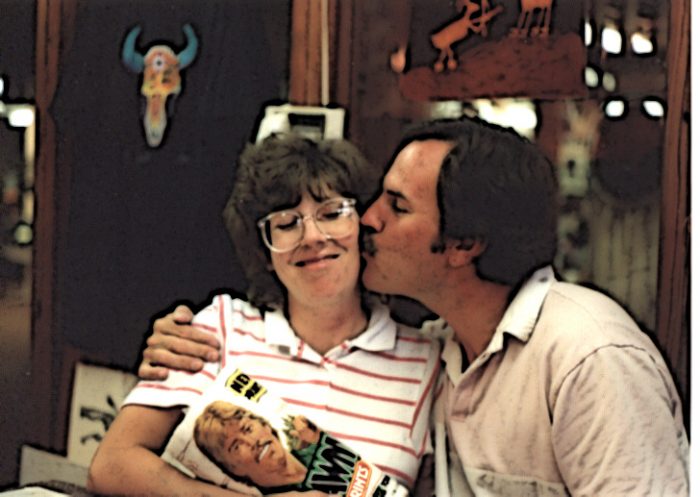
Kathy Cooney, art gallery owner:
“I hope the people of Moab realize the importance of balance, and not to be too excessive in any one direction. Massive tourism can be as polluting as the toxic incinerator we didn’t want. As for out of town investors, the only way it will be good is if they have respect for the Moab people who live here and are working here today That’s what’s important. I think they should become a part of the community as opposed to us having to change to become a part of them.”
Al McLeod, electrician:
“I think the Moab APATHY is more powerful than any influence from Telluride or Park City will ever be. That’s my personal opinion.”
Harold Behr, computer store owner:
“My biggest concern is the demand that the tourist based community expects in services and the mediocrity it creates. An example of this is Mcdonalds, which is rumored to be coming here, versus a Main St. Broiler where you can get a really special hamburger that’s a pleasure to eat or something that you just stuff in your gut. You see that along a full range of services. Most of the businesses that are in town here were established by people that moved here for the character of the town, for the heritage, the community feeling. The products and services being provided from a standpoint of personal satisfaction, individual pride and quality craftsmanship. Again as an example, the Main St Broiler. Carl (Rappe) comes out and makes sure you get exactly what you need, makes a fresh pot of coffee for you. Those people will sell out when they find they can’t compete against the mass manned concept being marketed by the chains and the folks with the out of town money. So you take away the job satisfaction from what we’re doing and there’s no reason to do business here.
It’s a cascading sort of thing…as tourism becomes a primary industry, we’re going to find more individuals who just give up. Look at “The Movies” video store. I liked to go talk to Kyle (Bailey) and ask about new movies, what was good and bad…he took the time to know and he enjoyed it. In comes the mass video, and you can’t find out if a movie is new or old, bad or good. They just take your money and say, ‘Next please.’ That’s what concerns me.”
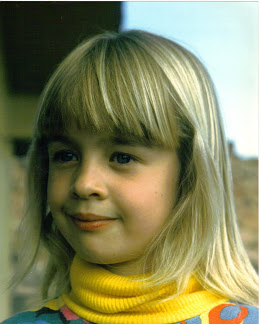
Vanessa Pierson (age 10,) actress:
“I say ‘No.’ (Tourism) ruins the environment. They come with their bikes and run over everything.”
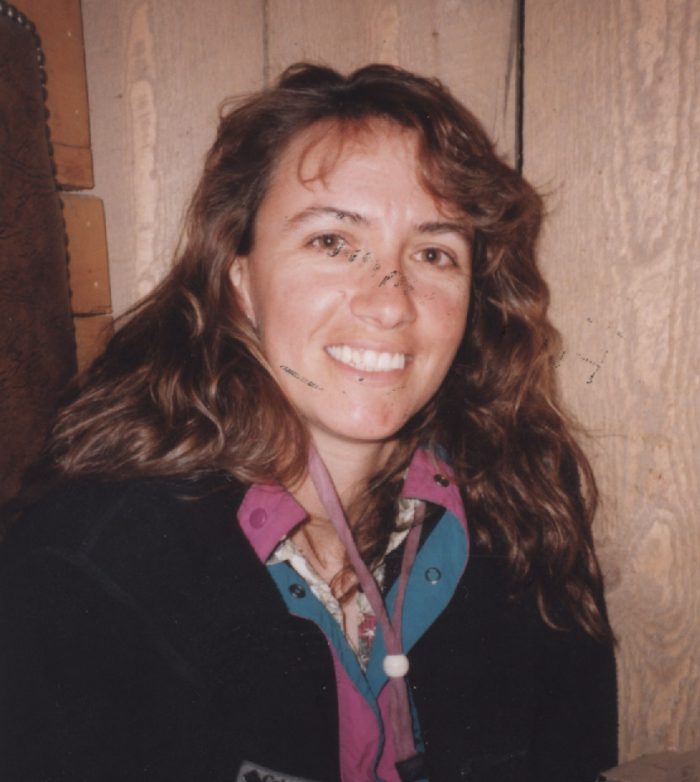
Sue Bellagamba, Program Coordinator, Environmental Education Center:
“I like to see a diversity of people in Moab and I’m not against tourism at all. I don’t like to see our fragile desert environment not being able to withstand the great numbers of people that we’re getting. That worries me. I don’t like the we/them attitude that develops in so many tourist towns. What I don’t want to see happen is prices on lands and homes inflated to the point where we can no longer afford them because we live and work in a community that doesn’t have high wages. That is what happened to me on some land adjacent to my house that I wanted to buy. I made an offer at the appraised value and it was bought by someone else at twice that value. They were from Aspen and I’m sure they’re nice people and will be great neighbors, but there was no way I could afford it. I like diversity. That’s why I liked Moab so much when I moved here. I like miners, and ranchers and a little bit of everybody. The problem is when too many of one group come in and control and dominate and change the community.”
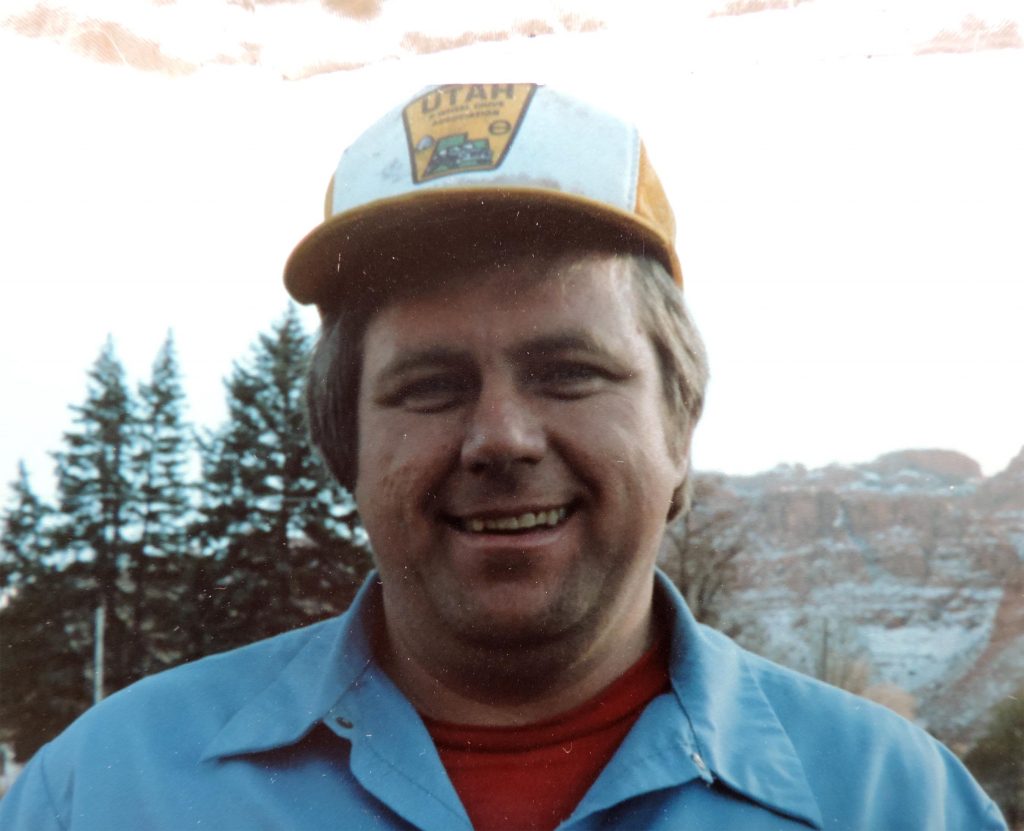
Dan Mick, auto body shop manager:
“Tourism is here. I come from a tourist town in Minnesota and grew up around the cycles of an up and down economy. I think tourism is the future of Moab. I don’t think you’re going to see uranium mining or ranching come back. People come here for the scenery, the friendliness of Moab, the clean air, so I think we’ll see a lot more of it. Out of town money, whether it’s good for the community, these people are over the fear factor and are investing their money. If we could get over that factor, we’d do something. Somebody’s got to do it sometime. I’d like to see local people do it and keep it in the city, but nobody so far has jumped in there and done that. People have wanted to keep Moab like it is, to keep it small, but I think the money’s going to come in to the town and go out of the town until we get over the fear factor ourselves and start doing the same things they’re doing.”
H.K. Hancock, director S.E. Center:
“On the subject of outside money and its future role in S.E. Utah, I think that to whatever extent we (locally) feel the need to rely on either investors or expert advisors from outside, we lose control of our own destinies.
On the subject of to what extent tourism should be or become THE underpinning of the S.E. Utah economy, the good news is that there’s little doubt that other than locating a rich uncle, tourism is probably the least polluting industry extant. Not necessarily in the bad news category, but a thoughts which occurs to me when I remember I”m not totally comfortable with tourism as the basis for an economy, is a passage from John Ise’s classic, The National Parks. Over 30 years ago he said, ‘With a place’s decision to accept or promote tourism as a means of survival, that place has acknowledged that its last hope for a continued existence is in someone else’s hands.’”
Dale Parriott, machine shop owner:
“Tourism is the best quick alternative, but in the long run, I think it’s the worst thing we’ve ever done in Moab. Ten years ago, we should’ve given tax incentives for one, two, three-person businesses—small over-operated businesses that would bring money into town and generate trades and crafts that Moab doesn’t have. Tourism is a good deal, but we only get it seven months a year. What about the rest of it? Tourism will shut out a lot of opportunities for in-town people. The kids that are growing up now will not be able to own property like their parents did. It’ll all be sewed up. As soon as the out of town money starts coming in, the taxes will go up, and as the tax base goes up, as property becomes more expensive, there’s going to be a lot of people who won’t be able to afford to live here. There are some good benefits as well—better hospitals, better schools. But personally, I’m not sure that we’re not giving up a good way of life that we’ve had for a century in this valley. All for the sake of money. We’re not here on the planet just to make money.”
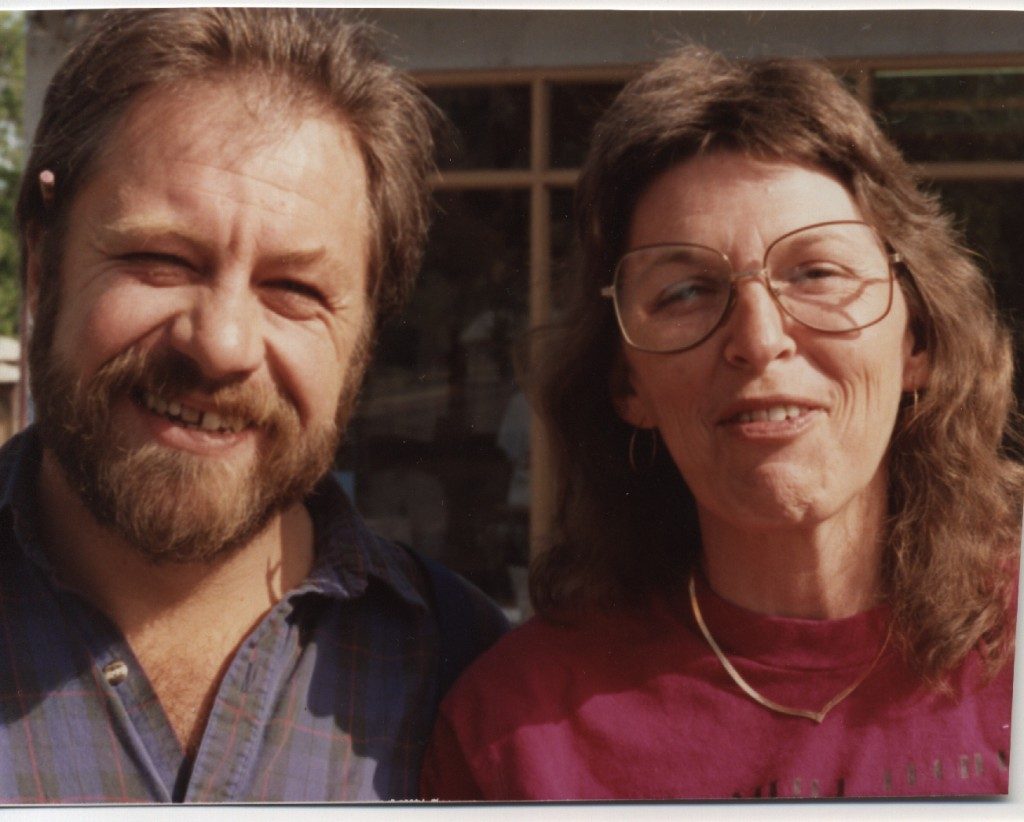
Robin Groff, bicycle shop owner:
“Tourism is the answer at this moment. This town was depressed after the mining industry collapse in the early 80s, and there’s no doubt that the town is more prosperous now than then. Whether tourism is the final answer or the best answer is debatable, I suppose. Certainly a well-rounded economy beats a one-sided economy. But until that happens tourism is going to be the answer, probably for the next 10 years. This community is not set up right now for light industry, nor is it going to be in the near future. We don’t have the infrastructure for it. We don’t have the infrastructure for the tourism we’re getting, but we’re working on it at least. We have great scenic beauty and that’s our resource and tourism plays off that.
I don’t think all the people here are going to welcome out of town investment, myself included. I think the question is moot, though, because I don’t believe there’s a lot we can do about it. When it comes, it comes, and we’re just going to have to deal with it. ‘Politically,’ is the best way to deal with it. We have to have development that is consistent with the traditions of Moab. We can’t compete economically with these people, or entities, or ‘them,’ whoever ‘they’ are with money. So the only way we can help ourselves in keeping these traditions is through the political structure. That means zoning and planning. But eventually, I do see Moab becoming somewhat like Aspen or Telluride and I don’t think there’s much we can do about that. But we can hold it down so the unfavorable aspects of those communities we can try to hold out, and retain the flavor of moab. But to think we can put a lid on it is naïve.”
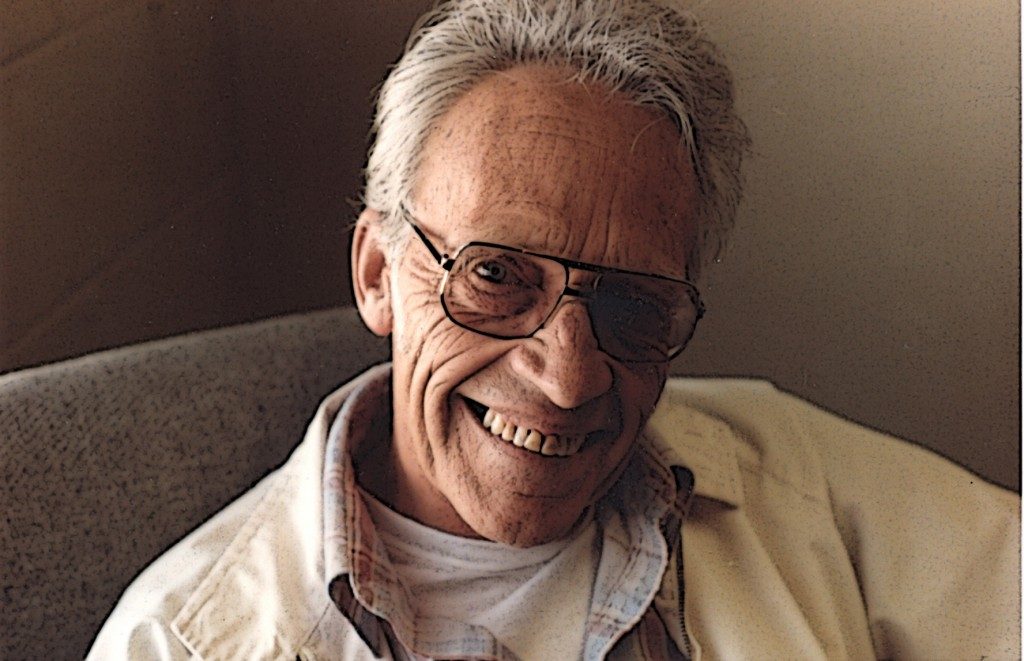
Jimmie Walker, Administrator, G.C. Road District:
“I don’t think that tourism is the answer singularly because we’ll end up in the same trip as we used to be when we were a mining town. We need diversification, and we need to keep our minds open to other industries to balance things yet. I see a trend towards the outside interests taking over, because we’re such a natural for their needs. Whether it’ll be all that bad or good, I really can’t say for sure. Anytime you get activity of an economic nature, it can’t be all bad. But it might also increase the cost of gas, groceries, motels and certain things that can create a burden on the permanent people.”
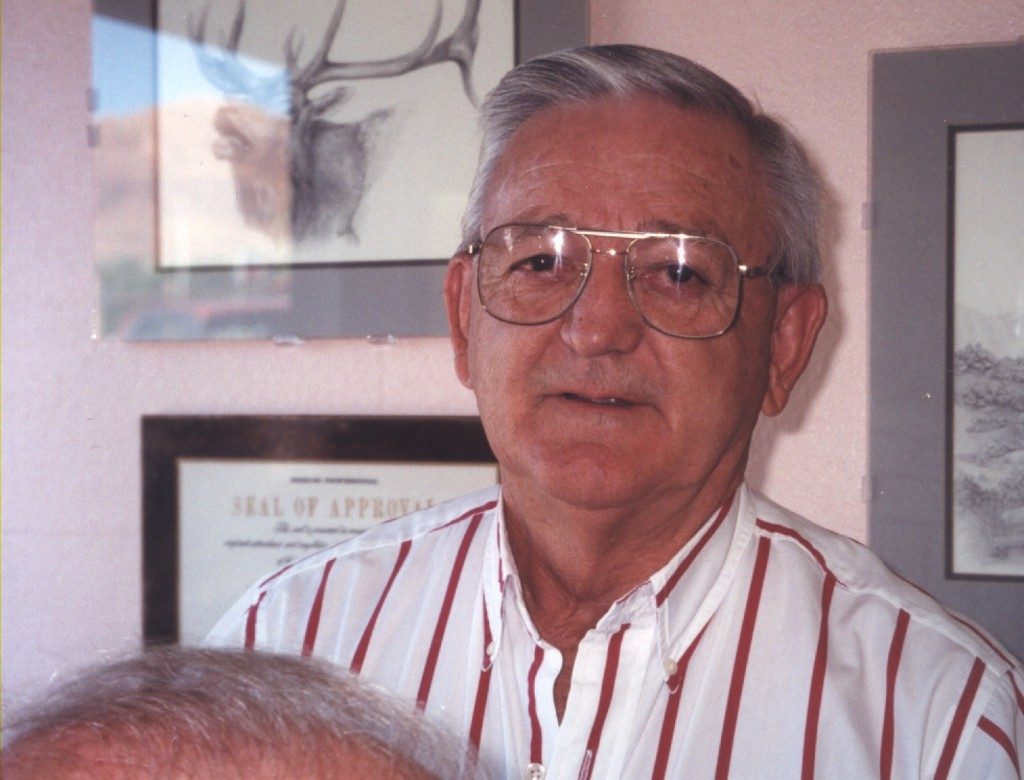
Dale (Pete) Peterson, barber:
“I think we need local entities in our business here instead of people from New York or the corporate structure telling us what we can or can’t do in our own communities. Take a look at the Yellow Front. The manager down there is out of business, simply because the company didn’t handle itself well somewhere else. Tourism right now seems like the only thing we’ve got and maybe some retirement. So we have to do what we have to do. Maybe someone needs to look at light industries, but every small town in America is trying to do the same thing.”…
To comment, scroll to the bottom of the page.
Don’t forget the Zephyr ads! All links are hot!
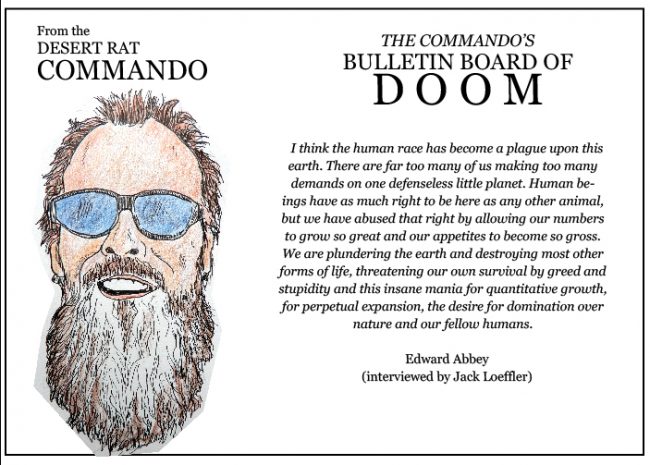
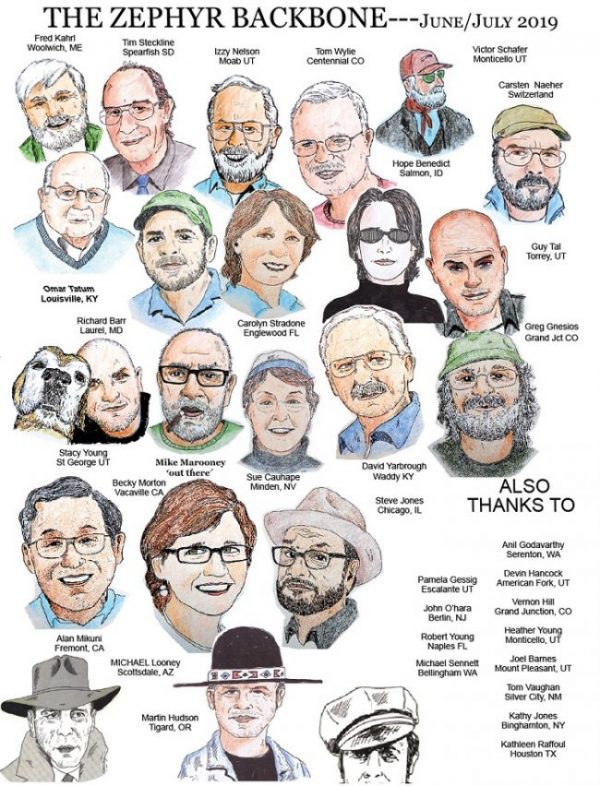

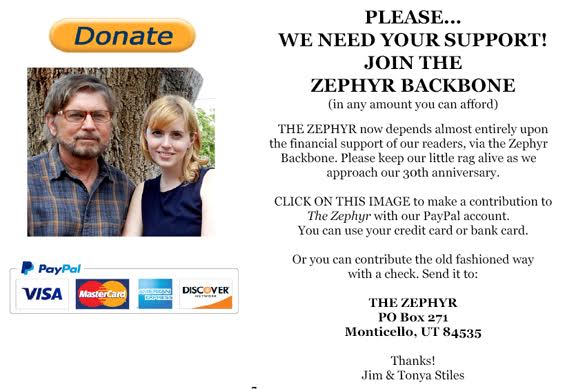
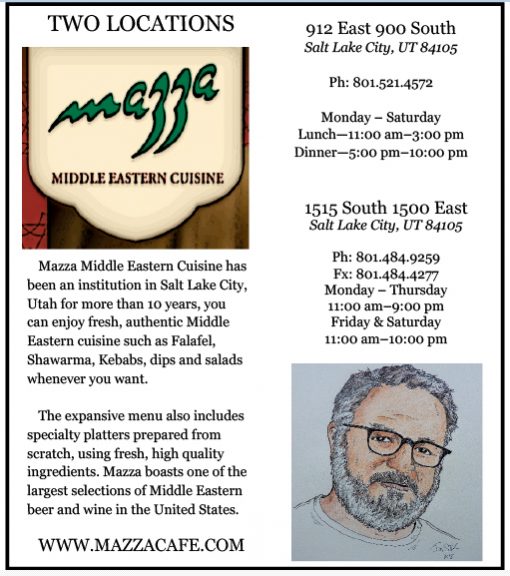
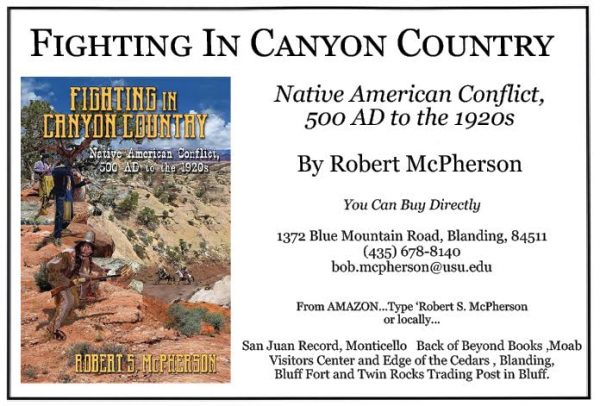
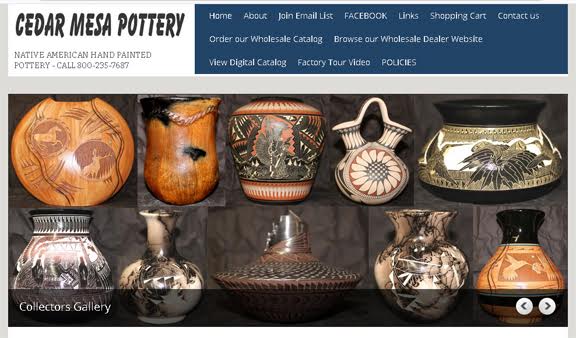
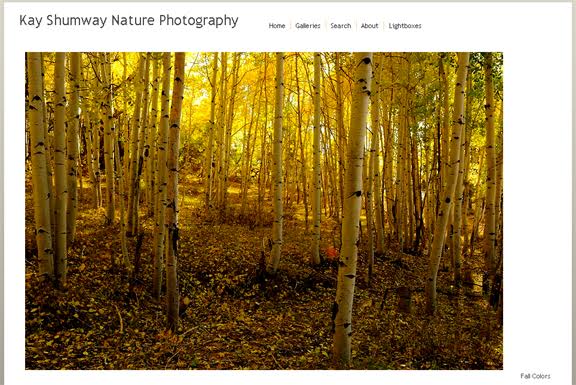
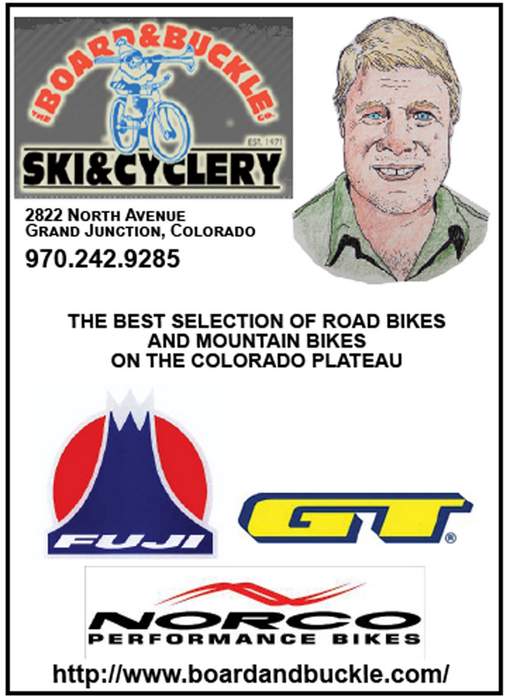
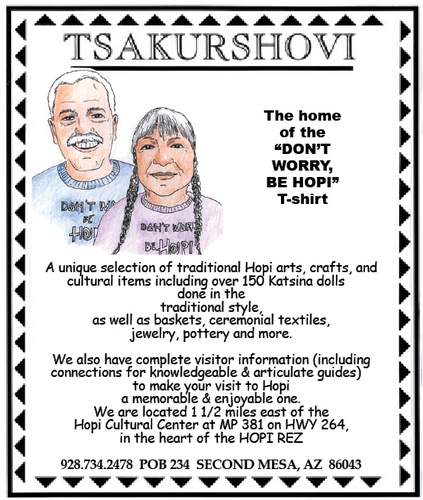
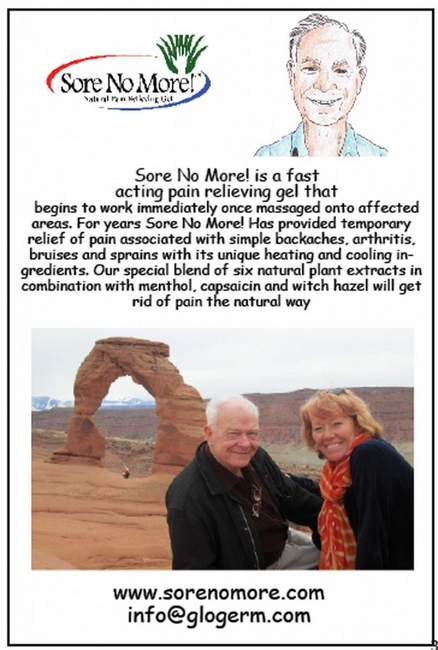
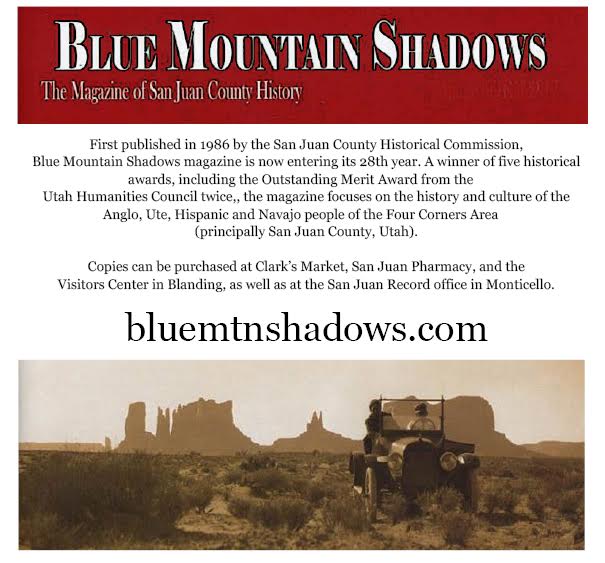
Nice Jim, can I ask why the hell you are so nostalgic for something that is long gone? Get with the times you hack. RMC
“Vincent” or “RMC” ( and all you silly people who hurl insults from the anonymous safety of pseudonyms)…I think by definition I could only be nostalgic for things past and most likely “long gone). I don’t see myself getting nostalgic for 2019 Moab gridlock, corporate motels, massive crowds, or…people like yourself. Cheers Vincent! —Jim